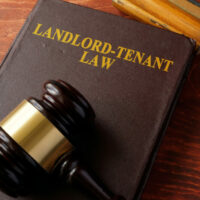Take These Steps Before You Rent Your Property to Any Tenants

We’ve all had or heard our fair share of horror stories when it comes to landlord-tenant issues: renters who failed to pay rent, applicants who claimed they were discriminated against, people who claimed that they were injured on the property, etc. As a commercial landlord, there are several basic steps that you want to take before you rent to any tenants, and as attorneys who regularly help landlords with commercial leases, eviction proceedings, and other legal issues that come up, we emphasize taking these initial steps with our landlord clients, and discuss them below.
Getting Educated
Read up on the different issues that landlords encounter and how to minimize risk, including the good, the bad, and the ugly. This includes the full gamut of issues: how to screen potential tenants, your rights as a landlord, etc. Also try to speak with experienced landlords and learn from their mistakes, for example, the pros and cons of renting to friends.
Also get as familiar as you can with the rental laws in your state in order to thoroughly understand both your responsibilities and those of your tenants. In Florida, the Fair Housing Act protects tenants and prohibits landlords from doing certain things, such as creating unfair rules in a lease agreement, retaliate against tenants who exercise fair housing rights, discriminate based on any protected characteristics of tenants, such as disabilities. However, there are no limits on collecting a security deposit.
Build Up an Emergency Fund
There will be things that suddenly go wrong in rental situations, such as the water heater that needs replacing, or the roof that needs repairing, etc. In general, we suggest that landlords keep a fund of at least $10,000 on hand so that they can quickly respond to any emergencies, tenants are safe, and you do not miss out on any rental income.
Screening Tenants
Properly screening tenants is one of the most important steps in setting yourself up for a successful rental situation. Even before paying a company to run an official background check, some landlords find it helpful to have applicants fill out a questionnaire. This can sometimes help weed out people who may have a criminal history, a history of past evictions, or even those who may decide not to fill out the questionnaire at all.
Changing Your Insurance Coverage
Not only will your homeowner’s insurance likely change in terms of no longer needing coverage for possessions inside the dwelling, but it would be wise to get an umbrella insurance policy because being a landlord increases your risk and you want to make sure you have the right coverage to help you recover from any potential disaster.
Contact Our Florida Commercial Landlord & Tenant Attorneys
If you have questions about any commercial landlord and tenant issues, we can help. Contact our Tampa commercial landlord & tenant attorneys at HD Law Partners today to find out more.
Resource:
businessinsider.com/steps-i-had-to-take-before-renting-out-my-first-home
